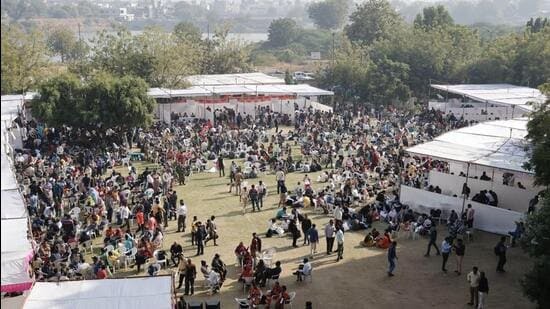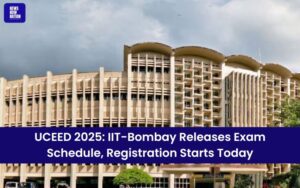
Juhapura is located on Ahmedabad’s outskirts and has been described as India’s largest Muslim ghetto with a population of about 500,000.
Rafia Maniar, 54, was settling into a new life in Ahmedabad’s Vasna after getting married in 1990 when her life turned upside down. The residential society she moved into with her in-laws was burnt down the same year in the 1990 communal riots.
The violence forced them to move to Muslim-majority Juhapura, which then had a lot of open space. Juhapura now has little space as Muslims from other parts of Ahmedabad and Gujarat have continued to move there in the aftermath of the 2002 riots.
Maniar said Vasna is now a Hindu colony and she too has moved on. She added the 2002 riots are a thing of the past and cannot recur as people have become smarter. “They know only innocent people die in riots and the real culprits are never caught,” said Maniar, a henna artist. “I have no fear of Hindus. They are my clients and I have good relations with them.”
Inflation, poor roads, and lack of quality education were the key issues for Maniar as Gujarat went to the polls in two phases on December 1 and 5. She said she was unsure if any political party can solve their problems.
“The area [Juhapura] is cut off from the rest of Ahmedabad… [it is without] basic infrastructure like gas connectivity, quality roads…[we face] issues [related to] drainage and availability of water.”
Maniar said the Muslim community needs economic prosperity. “There are girls in my neighbourhood who have scored well and want to become doctors but they have to change the streams due to lack of funds for education.”
Juhapura is located on Ahmedabad’s outskirts and has been described as India’s largest Muslim ghetto with a population of about 500,000. It falls under the Vejalpur constituency.
I H Kadri, a Juhapura resident, and a corporate trainer, said they feel cut off from the mainstream with all major parties the ruling Bharatiya Janata Party (BJP), Congress, and Aam Aadmi Party (AAP) even refraining from campaigning in their area.
He added in the nearby Prahlad Nagar, there was high-decibel campaigning. “Many Juhapura residents do not have voter identity cards and a large number of us do not vote. We do not see any power in voting.”
The Disturbed Areas Act, which was introduced in 1991 to replace a 1986 ordinance the then Congress government issued, is seen as a major source of Muslim woes. It prohibits Hindus and Muslims from buying and selling properties to each other without a district collector’s permission.
In 2010, the law was amended and renamed Prohibition of Transfer of Immovable Property and Provision for Protection of Tenants from Eviction from Premises in Disturbed Areas Act. Originally meant for Ahmedabad, the law now covers cities and towns including Surat, Vadodara, Rajkot, and Bharuch.
The 2002 riots led to a massive influx of internally displaced people into Juhapura. “If you are a Muslim in Juhapura, you will get a sense of what living in a ghetto is. I cannot go anywhere else in Ahmedabad…where the Hindus live. It is not just the Act. The Hindus are also not ready to accept us as their neighbours,” said Asif Shaikh, a trustee of Juhupura’s Crescent School.
He added neither the Congress, BJP nor AAP can do anything for them. “…we have to progress on our own. Congress did not help me build a school for my community. Neither did the BJP. Muslim votes are irrelevant.”
The BJP has once again not fielded any Muslim candidates for the seventh time since getting power in Gujarat first in 1995. The Congress has given tickets to six and AAP four Muslim candidates.
Political analyst Ghanshyam Shah said Muslims account for around 10% of the state’s population and have a sizeable presence in 10-12 seats. “All parties have alienated Muslims over the years. Their representation in Congress has also gone down with each election. Congress does not openly take a stance for the community. Gujarat’s Muslims have no voice.”
On October 8, posters and banners of AAP chief Arvind Kejriwal in a Muslim skull cap came up across cities of Gujarat. A day earlier, a video of AAP’s Delhi minister Rajendra Pal Gautam, who was later forced to resign, attending an event where Hindus vowed to convert to Buddhism went viral and drew a sharp response from the BJP.
He said education was disrupted in the last 100 years for India’s Muslims. “Our renewed focus on education can be seen across India.”
Nazneen Lokhandwala, another Juhapura resident, echoed Shaikh, calling education their biggest focus. “There are no colleges in Juhapura. Even for students who want to study science at the higher secondary level, there are no schools in the neighbourhood. There are no public gardens or recreational places. If there is one positive change in the area, the water issues are getting resolved.






